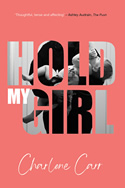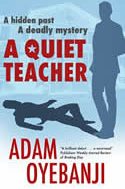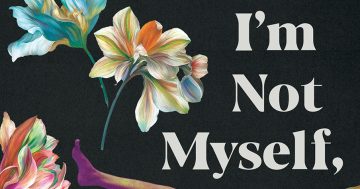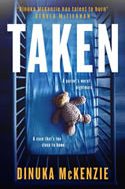Reviewed by Robert Goodman.
By Jessamine Chan, Penguin, $32.99.
 Jessamine Chan used the real life story of a mother whose child was removed by Child Protection Services as the basis for her slightly dystopian debut The School for Good Mothers. Clearly drawing on antecedents such as Margaret Atwood’s The Handmaid’s Tale and Joanne Ramos’ The Farm in relation to its view of idealised motherhood but also an exploration of race and racism and a definite strain of Kafka’s The Trial.
Jessamine Chan used the real life story of a mother whose child was removed by Child Protection Services as the basis for her slightly dystopian debut The School for Good Mothers. Clearly drawing on antecedents such as Margaret Atwood’s The Handmaid’s Tale and Joanne Ramos’ The Farm in relation to its view of idealised motherhood but also an exploration of race and racism and a definite strain of Kafka’s The Trial.
Frida Liu has what she insists on calling ‘one bad day’. Frida had separated from her husband Gust after he had an affair and is struggling to juggle her work and her ten month old daughter Harriet on her own. On that bad day she leaves Harriet in a walker in her house, intending only to go out for a coffee but stays out for over two hours before getting a call that her daughter has been picked up and that she needs to come to the police station. After that incident Frida is in the system, an impersonal and bureaucratic system that relies on surveillance and supervised visits and is intent on making her claim to continued custody of her daughter as difficult as possible. This situation quickly results in her being sent to a new facility that trains bad parents.
The bulk of the novel is then spent at the school where the standards are impossible, the tasks rigged and the rules continually changing and becoming more draconian. The school has a particular standard for motherhood that is unobtainable and based more on myth than observed reality (for example: love cures illness).
Frida is by no means a likeable protagonist but she is extremely relatable. She keeps coming back to her “one bad day” which was thoughtless and dangerous in any context but shows that she is a human being and one who needs help not punishment. And as her ordeal continues, the level of unfairness, the amount of pain that she is put through by a system that claims to be doing “good”, starts to become unbearable.
The School for Good Mothers can feel a little one note. Chan makes her point and then she makes it again and then she makes it again, but each time she ramps up the absurdity and the pressure on Frida. There is a point to this. The repetition, the Kafka-esque manipulation of the rules, the despair and ever increasing unfairness starts to have an effect on the reader as much as the characters. And woven through the narrative is the racism inherent in the standards and expectations that are being imposed on these women, adding additional layers to Chan’s more overt social commentary.
Over 750 more reviews can be found on Pile by the Bed.












